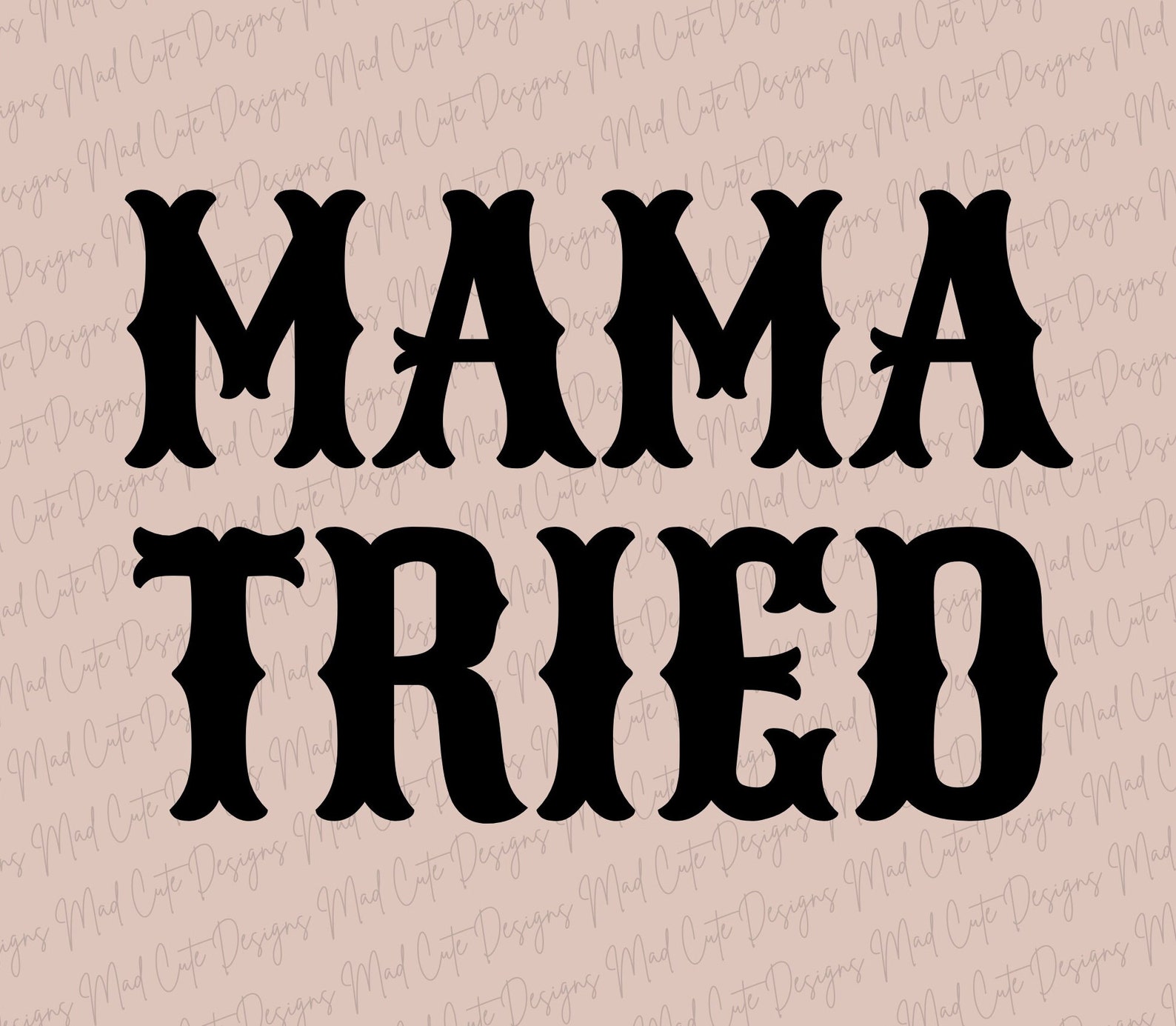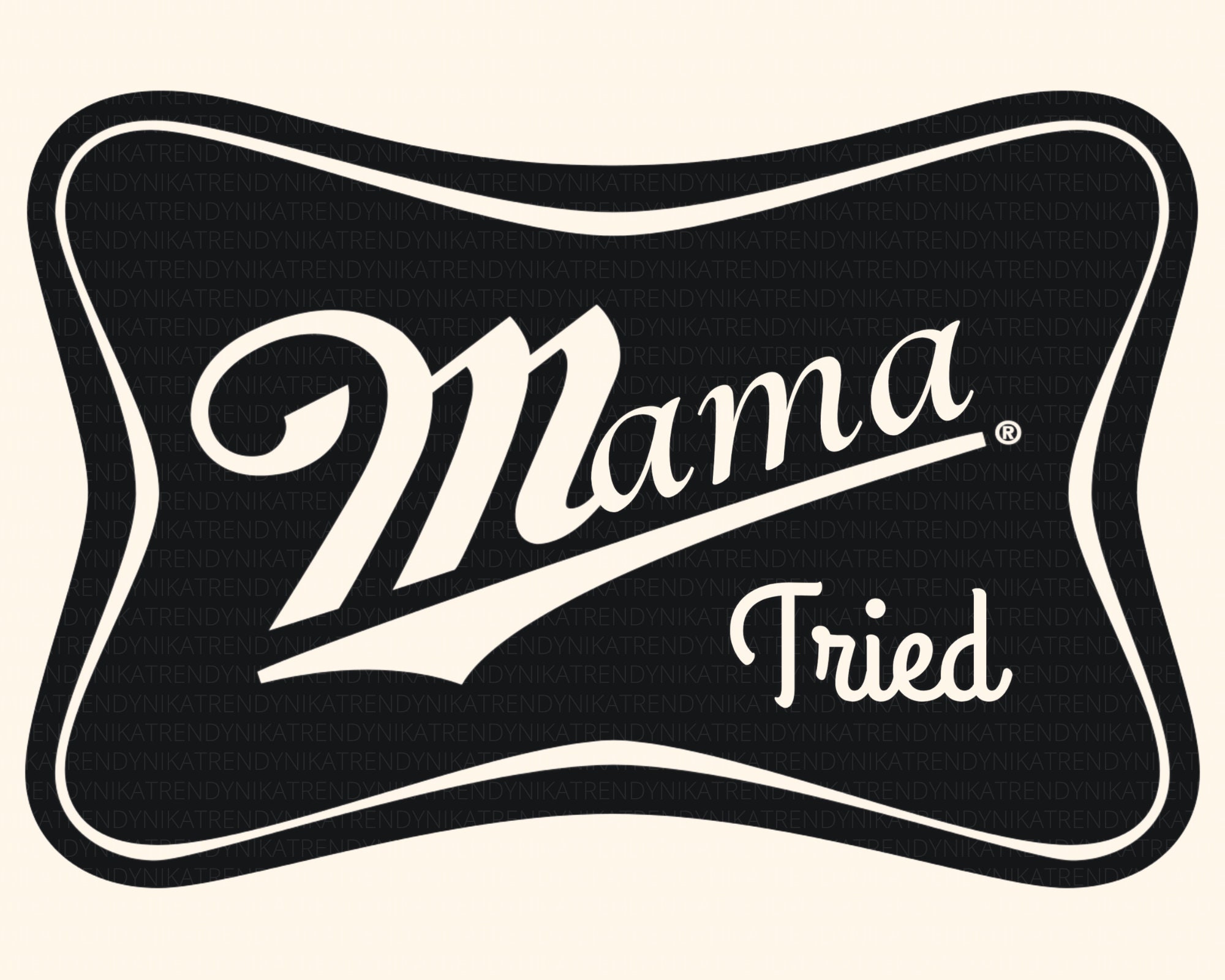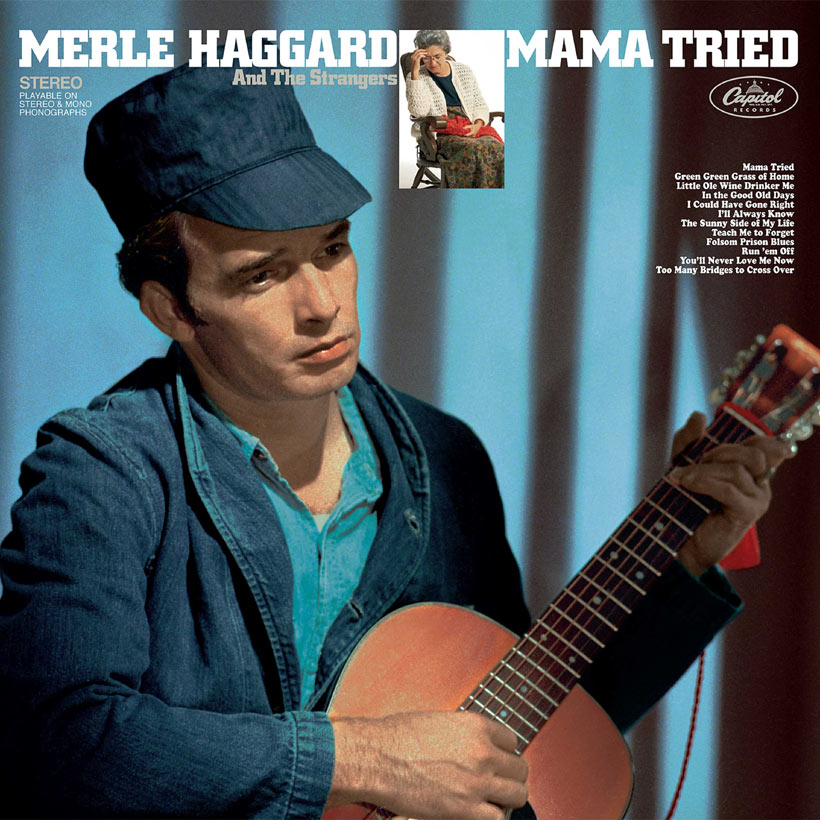Mama Tried: The Raw Truth Of A Country Legend's Reckoning
Few songs in the annals of country music resonate with the raw, unfiltered honesty of "Mama Tried." This classic country song, penned and performed by the legendary Merle Haggard, isn't just a catchy tune; it's a profound, autobiographical narrative that delves deep into a son's troubled relationship with his mother, his rebellious youth, and the consequences of a life lived on the wrong side of the law. It's a testament to the enduring power of a mother's love and the painful lessons learned from straying from the straight and narrow.
More than just a chart-topping hit, "Mama Tried" has etched itself into the very fabric of American culture, becoming an anthem for anyone who has ever felt the pull of rebellion, the sting of regret, or the unwavering support of a parent trying to guide them. This article will explore the rich tapestry behind this iconic song, from Merle Haggard's tumultuous personal history that inspired its creation to its lasting impact on music and beyond. We'll uncover its lyrical genius, its production story, and why, decades later, "Mama Tried" continues to speak volumes to new generations.
Table of Contents
- Merle Haggard: A Life Forged in Hardship and Song
- "Mama Tried": Unpacking the Lyrical Narrative
- The Song's Production and Chart Performance
- Awards and Accolades: Recognizing a Masterpiece
- Cultural Impact and Enduring Legacy of "Mama Tried"
- "Mama Tried" in the Broader Context of Prison Songs
- The Raw Authenticity: Why "Mama Tried" Still Resonates
- Conclusion
Merle Haggard: A Life Forged in Hardship and Song
To truly understand the profound depth of "Mama Tried," one must first understand the man behind the music: Merle Haggard. His life story is as compelling and complex as the songs he wrote, a testament to resilience, redemption, and the transformative power of art. Born in Oildale, California, in 1937, Haggard's early life was marked by hardship and a yearning for freedom that often led him down dangerous paths.
Early Life and Troubled Youth
Merle Haggard's childhood was irrevocably altered by the death of his father when Merle was just nine years old. This profound loss left a void that, combined with a natural rebellious streak, set him on a trajectory of delinquency. His mother, a devout member of the Church of Christ, made every effort to keep him "on the straight and narrow with a strict upbringing based on her conservative values." She truly "tried to raise him better," as the song suggests, instilling in him a sense of right and wrong that, despite his actions, he never fully forgot.
However, the allure of the road and a life outside conventional boundaries proved too strong. Haggard's youth was a cycle of petty crimes, running away from home, and frequent stints in juvenile detention centers. One notable incident, often misconstrued, involved him "drunk and trying to break into a bar at the back door." The bar owner caught him, and the police were called. These experiences, though regrettable, became the crucible in which his artistic voice was forged. His time spent behind bars, particularly a significant period in San Quentin State Prison, became the wellspring of authenticity that would define his musical career. It was during this period that he witnessed Johnny Cash perform, an experience that profoundly impacted his decision to pursue music seriously upon his release.
From San Quentin to Stardom
Merle Haggard's journey from inmate to icon is one of country music's most legendary tales. His experiences in prison, far from being a hindrance, became a unique selling point. In the 1960s, "country music fans had some attraction to hearing about prison life in songs from a couple different artists," most notably Johnny Cash and Merle Haggard. These artists "seemed to have used the mystique of spending time behind bars to build a persona that sold records." For Haggard, this wasn't merely a persona; it was his lived reality, lending an unparalleled credibility to his songs about hardship, redemption, and the working man's struggles. His music became a voice for those on the fringes, those who understood the sting of regret and the hope for a second chance.
| Attribute | Details |
|---|---|
| Full Name | Merle Ronald Haggard |
| Born | April 6, 1937, Oildale, California, U.S. |
| Died | April 6, 2016 (aged 79), Palo Cedro, California, U.S. |
| Occupation | Singer, songwriter, guitarist |
| Genres | Country, Bakersfield sound, outlaw country |
| Instruments | Vocals, guitar, fiddle, bass, mandolin |
| Years Active | 1960–2016 |
| Labels | Tally, Capitol, MCA, Epic, Curb, Anti- |
| Associated Acts | The Strangers, Willie Nelson, George Jones, Johnny Cash |
"Mama Tried": Unpacking the Lyrical Narrative
"Mama Tried" is more than just a song; it's a confessional, a poignant reflection on a life lived outside the lines, and the unwavering love that tried to pull it back. The song is "largely autobiographical," a direct window into Merle Haggard's soul and his relationship with his mother. Its narrative structure is simple yet powerful, unfolding like a personal diary entry.
The Opening Lines: A Glimpse into a Troubled Soul
The very first lines of "Mama Tried" immediately set the tone, drawing the listener into a world of longing and wanderlust: "The first thing I remember knowing, was a lonesome whistle blowing, and a young un's dream of growing up to ride, on a freight train leaving town not." This imagery of a "lonesome whistle blowing" evokes a sense of rootlessness and a yearning for escape, a common theme in country music that resonated deeply with Haggard's own experiences of running away and seeking adventure. It paints a picture of a restless spirit, destined for a life of movement and perhaps, trouble.
These opening verses from "Mama Tried" lyrics by Merle Haggard from 'The Lonesome Fugitive' immediately establish the song's core theme: a life shaped by early desires for freedom and the subsequent consequences. The dream of "growing up to ride on a freight train" is a powerful metaphor for a life unconstrained by societal norms, a path that ultimately led him to prison, as the song details his "rebellious youth and prison time."
The Mother's Unwavering Effort and the Son's Regret
The heart of "Mama Tried" lies in the poignant contrast between the mother's earnest efforts and the son's rebellious choices. The lyrics explicitly state that the son "blames his mother for trying to raise him better," a line that carries both irony and deep regret. It's not an accusation but an acknowledgment of his own failure to heed her guidance. His mother, with her "strict upbringing based on her conservative values," did everything in her power to keep him on the "straight and narrow."
The song chronicles his descent into crime, culminating in a 25-year sentence in the state penitentiary. Yet, even from behind bars, the love and lessons from his mother persist. The repeated refrain, "Mama tried," becomes a powerful lament, a recognition of her unwavering dedication despite his wayward path. It's a song that captures the universal truth of parental love and the often-painful realization of a child's own mistakes. The raw emotion conveyed through the "Mama Tried" lyrics is what makes it so relatable, as many listeners have felt a similar connection to their own experiences or those of loved ones. As one listener noted, "It was so well describing my life that I felt maybe I..." – highlighting the song's deep personal resonance.
The Song's Production and Chart Performance
"Mama Tried" was released in 1968 as the lead single from Merle Haggard's album, 'The Lonesome Fugitive.' The song quickly resonated with audiences, climbing the country charts to become a number one hit. Its success was a testament to its compelling narrative and Haggard's authentic delivery. The production, typical of the Bakersfield sound that Haggard helped pioneer, was clean and direct, allowing the powerful lyrics and his distinctive voice to take center stage. The song's enduring quality is further evidenced by its re-releases, such as the "Mama Tried (Remastered 2001)" version provided to YouTube by Universal Music Group, and another version in 2006 on 'Mama Tried/Pride in What I Am.' The simplicity and honesty of its arrangement ensured that the song's message cut through, cementing its place in country music history.
Awards and Accolades: Recognizing a Masterpiece
While specific awards for "Mama Tried" are numerous and reflect its iconic status, the song itself is often cited for its profound impact and critical acclaim. It received a Grammy Hall of Fame award in 1999, recognizing its historical significance and enduring quality. Beyond formal accolades, "Mama Tried" is consistently ranked among the greatest country songs of all time by critics, musicians, and fans alike. Its raw honesty, autobiographical depth, and universal themes of family, regret, and redemption have earned it a timeless appeal. The song's influence on subsequent generations of country artists is undeniable, serving as a benchmark for lyrical integrity and emotional authenticity.
Cultural Impact and Enduring Legacy of "Mama Tried"
The cultural footprint of "Mama Tried" extends far beyond the confines of country music. It has become a touchstone, a shorthand for the idea of a good upbringing gone awry, and the unbreakable bond between a parent and child. Its influence on country music is immense; it helped solidify Merle Haggard's status as a songwriting giant and a voice for the working class and the marginalized. The song's ability to tell a deeply personal story with universal resonance is one of its greatest strengths.
Moreover, "Mama Tried" has transcended genre boundaries, finding new life through various covers. Perhaps one of the most famous and unexpected covers is by the legendary rock band Grateful Dead. Their rendition introduced the song to a whole new audience, demonstrating its adaptability and timeless appeal. Learning to play "Mama Tried" by Grateful Dead using chords and tabs has become a common pursuit for musicians, further cementing its cross-genre appeal. This widespread recognition underscores the song's powerful narrative and its ability to connect with diverse listeners, regardless of their musical preferences. The song's powerful narrative has made it a staple, not just in country music playlists, but in the broader cultural consciousness, appearing in films, television shows, and becoming a popular reference point in everyday conversation.
"Mama Tried" in the Broader Context of Prison Songs
In the 1960s, a unique subgenre within country music gained significant traction: prison songs. Artists like Johnny Cash, with his iconic performances at Folsom and San Quentin prisons, and Merle Haggard, who himself had served time, capitalized on the "mystique of spending time behind bars to build a persona that sold records." "Mama Tried" fits perfectly into this narrative, offering a first-person account of the path that led to incarceration and the reflections that come with it. Unlike some romanticized depictions, Haggard's portrayal in "Mama Tried" is imbued with genuine regret and a clear understanding of the consequences of his actions.
The song provided listeners with a window into a world often hidden from view, making the experiences of the incarcerated relatable and human. Haggard's authenticity, rooted in his own experiences, set him apart. While others might have sung about prison life, Haggard had lived it, and this truth permeated every note and lyric of "Mama Tried." It wasn't just a song; it was a testimony, a raw confession that resonated with anyone who understood the weight of personal choices and the desire for a better life.
The Raw Authenticity: Why "Mama Tried" Still Resonates
Decades after its release, "Mama Tried" continues to captivate audiences. Its enduring appeal lies in its unflinching honesty and its exploration of universal themes. The song speaks to the complexities of family relationships, the struggle between personal freedom and societal expectations, and the profound impact of a mother's love. It's a story of rebellion, regret, and ultimately, a quiet acceptance of responsibility, all wrapped in a deceptively simple country melody.
Merle Haggard's delivery, steeped in the Bakersfield sound, is both world-weary and deeply emotional, conveying the weight of his experiences without resorting to melodrama. The lyrics of "Mama Tried" are a masterclass in storytelling, painting vivid pictures with sparse, evocative language. It's this blend of personal narrative, raw emotion, and musical craftsmanship that ensures "Mama Tried" remains a relevant and beloved classic, a powerful reminder of the human capacity for both error and reflection.
Conclusion
"Mama Tried" stands as a towering achievement in Merle Haggard's illustrious career and a cornerstone of country music. It's a song that transcends its genre, offering a timeless narrative of youthful rebellion, the unwavering strength of a mother's love, and the sobering realization of consequences. Through its autobiographical honesty, Haggard not only told his own story but also gave voice to countless others who have walked similar paths or witnessed similar struggles. The song's lyrical depth, coupled with its authentic delivery and enduring cultural impact, ensures its place in the pantheon of American music.
If you've never truly listened to "Mama Tried," take the time to immerse yourself in its powerful narrative. It's more than just a song; it's a piece of history, a profound personal confession, and a timeless testament to the complexities of life and family. Share your thoughts on what "Mama Tried" means to you in the comments below, or explore more of Merle Haggard's incredible catalog to discover other masterpieces born from a life truly lived.
- Feliz Navidad Meaning
- Atlantic Firearms
- The Senators Son Full Movie
- Where To Watch The Oc
- Ozark Empire Fair

Mama Tried Svg Merle Haggard Svg Merle Haggard Mama Svg - Etsy

Mama Tried PNG Mama PNG Beer Logo PNG - Etsy Sweden

Mama Tried: reDiscover Merle Haggard’s Outlaw Country Classic